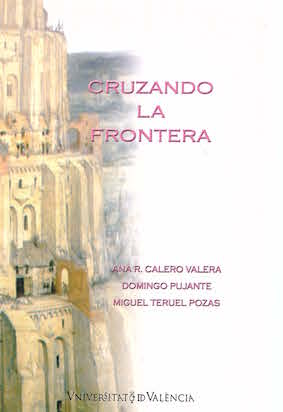‘La frontière tirée au cor-deau de sang dans la ville’: Les lieux-Sarajevo dans la narrative graphique d’Enki Bilal
DOI:
https://doi.org/10.7203/qf-elit.v12i0.5032Paraules clau:
còmic, ciencia-ficció, cyberpunk, individu, fronteres, guerra, destrucció Resum
Resum
En els còmics futuristes de Enki Bilal –autor d'origen iugoslau emigrat a França– es qüestionen diverses problemàtiques socioculturals relacionades amb els límits entre la singularitat i el grup. A través de la ciència-ficció, en la seva narrativa gràfica de marcada estètica cyberpunk, mostra el perill dels poders manipuladors, del fanatisme, de la intransigència religiosa, de la xenofòbia i de la globalització, que potencien la pèrdua d'identitat de l'individu que, desdoblegat i híbrid, es busca en llocs com Sarajevo, en zones zero, en espais urbans de destrucció. A través de la política-ficció i de les distòpies de la Trilogie de Nikopol i la Tétralogie du Monstre, Bilal assenyala les fronteres, no només espacials i culturals, sinó també existencials del jo enfront de l'Altre.
 Descàrregues
Descàrregues
Descàrregues
Publicades
Com citar
-
Resum193
-
PDF (Español)147
Número
Secció
Llicència
 Este obra está bajo una licencia de Creative Commons Reconocimiento-NoComercial-SinObraDerivada 4.0 Internacional.
Este obra está bajo una licencia de Creative Commons Reconocimiento-NoComercial-SinObraDerivada 4.0 Internacional.
Tots els documents inclosos a OJS són d'accés lliure i propietat dels seus autors i/o institucions editores, i per tant, qualsevol acte de reproducció, comercialització, comunicació pública o transformació total o parcial necessita el consentiment exprés i escrit d'aquests.
________
Authors who publish with this journal agree to the following terms:
- Authors retain copyright and grant the journal right of first publication with the work simultaneously licensed under a Creative Commons Attribution License that allows others to share the work with an acknowledgement of the work's authorship and initial publication in this journal.
- Authors are able to enter into separate, additional contractual arrangements for the non-exclusive distribution of the journal's published version of the work (e.g., post it to an institutional repository or publish it in a book), with an acknowledgement of its initial publication in this journal.
- Authors are permitted and encouraged to post their work online (e.g., in institutional repositories or on their website) prior to and during the submission process, as it can lead to productive exchanges, as well as earlier and greater citation of published work (See The Effect of Open Access).



